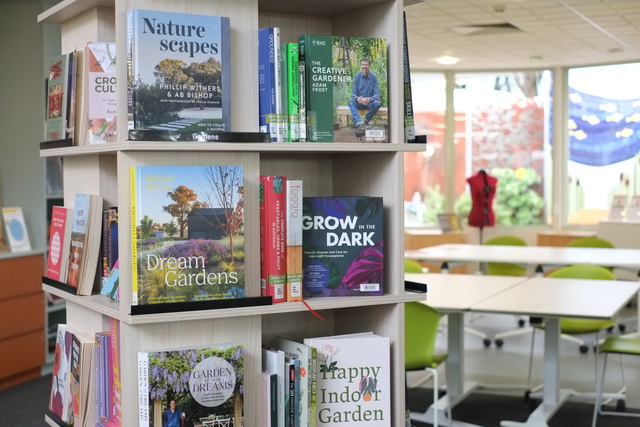Yarra Ranges Council has refreshed its Special Rate and Charge Scheme policy at the Tuesday 13 May council meeting.
Special charges have become more important for local residents since the Roads for Community funding was slashed in 2022.
Notable changes in the policy are an increase in the contribution ceiling for landowners and factoring in a $18,888,059 boost split over five years from 2024-2029, thanks to grants from the Federal Roads to Recovery program.
Monbulk resident Jordan Brown attended the meeting to speak to the policy and said he is in favour of the increase in the ceiling and recognises that costs have risen, but had a different concern.
“One thing I have noted in the policy is that it is somewhat mute on the aspect of road safety when assessing particular roads in terms of funding to have improvements on unsealed roads,” he said.
“Where I live in Monbulk, improvements to the roads in the area with this policy have improved drainage and other things in the area but it’s more properties or roads that fall outside of built up areas that are less impacted by this policy due to the prohibitive costs borne by the residents,”
“It would seem that there would be a need for greater access to funding from other stakeholders outside the Roads to Recovery program from the federal government in order to see greater improvements on the outskirts to the Yarra Ranges.”
Mr Brown also raised a question as to whether speed limits, particularly on unsigned roads where the limit is 100km/h, are considered in prioritising road projects, with Ryrie Ward Councillor Fiona McAllister putting this to question to the Director for Built Environment and Infrastructure Hjalmar Philipp and Manager of Infrastructure Services Kim O’Connor.
“Road safety is absolutely a priority and for example, the Special Charges Scheme can consider things like speed and some other treatments as part of the package, so the short answer is yes,” Mr Philipp said.
We also look at a lot of data in terms of crash stats and other reports on those particular roads as well so it’s not just one case by case scenario, we look at the details,” Mr O’Connor said.
“In particular there’s a lot of roads like connector roads where we have advocated for funding over and above some of the special charge scheme processes that we’ve had, so we’ve looked at agrilinks, to emergency management roads or similar roads that have been presented tonight, so it’s all part of what we can seal.”
The cap on landowner contributions has been set at $15,500 per Development Unit since 2016, which was an increase from the base $10,000 when it was established in 2000.
To come to the decision to raise to a new cap, set at $20,000, Council considered Consumer Price Index (CPI) inflation, which has risen about 16 per cent over 6 years, increases in construction cost measured by Producer Price Index for Road Construction which is considered to be about 22 per cent over 6 years and a review of Council’s tendering process which has found an increase from an average of $1100 per lineal metres in 2019 for an urban construction to between $1350 to $1900 per lineal metres by 2024.
Further questions were put to Mr Philipp about how visibility of the policy could be improved by Cr McAllister as well as why community consultation on the policy wasn’t done, which was a question from a community member communicated by Chirnside Ward Councillor and Deputy Mayor Richard Higgins.
Mr Phillipp said he thinks the easy answer to the questions of visibility is in the content on that website that explains what the scope of the policy is.
“As we talk about road improvements in the policy, we can potentially include an insertion that might expand on that but I think the easier approach is to keep the road improvements in the policy and add some words around when we communicate what this is and how this could be accessed,” he said.
“It’s effectively a refresh of the existing policy, but importantly, the policy is simply explaining how the legislation will be implemented for Council, so putting words around Section 163 of the Act, which prescribes what Council must do in relation to administering special charges and schemes, with two additions that Council include on top of the Act, which is the ceiling, which we’ve spoken about, and also the reference to greater than 50 per cent level of support to proceed, that’s to really help positive engagement around anything we do around special charge schemes and finally, I’d note that every single scheme is subject to consultation under the Act in any case, so it goes through a legislative process to consult.”
Mr Philipp also addressed a typo in the ‘Financial Analysis’ section of the policy which states the uplift is permanent, when it should be over the span of five years.
Cr McAllister moved the motion and said the special charges scheme is of huge interest to the community.
“As we refresh and in some ways, reinstate it following shifts in funding, which we’ve all spoken about probably very frequently, this is important, we know roads are very front of mind for our community, every kind of survey and poll and conversation reminds us of this,” she said.
“It’s important that we review it, particularly looking at financial impacts on community, and trying to build enough flex into it, and I know we’ve all had a lot of conversations about this with enough specificity, but enough legs that recognising that there are circumstances where council needs to lean in.”
“It’s not a short journey, intentional pun, but a really important one because in Yarra Ranges we have hundreds of kilometres of road, many of which are unsealed and whilst we would love to have the money to be able to seal them all, or the ones that community want us to seal, we don’t and this is a critical governance document that ensures there is transparency and a very robust process that’s followed.”
Melba Ward Councillor Mitch Mazzarella seconded the motion and it was carried unanimously.







